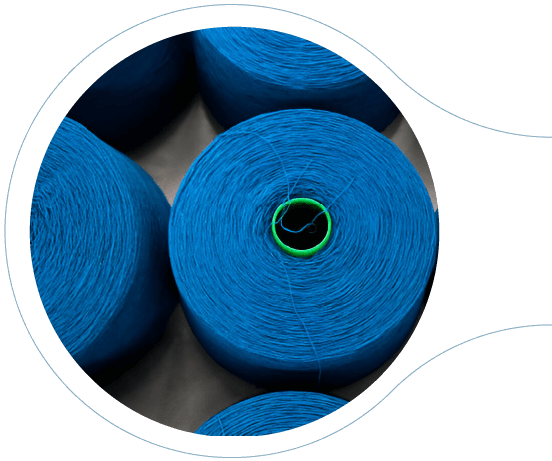
The client faced significant challenges in their resource-intensive denim production processes including high energy usage and the absence of a transparent system to check multi-utility usage (steam, water, compressed air, and coal) benchmarks.
Bosch DEEPSIGHTS
AI models
Compressor controller systems
Digital intervention tools

The denim production industry is characterized by its resource-intensive processes, consuming vast amounts of water and energy and surging emission levels, making it difficult for them to achieve sustainable goals. Such environmental consequences of the industry are compounded by the fragmented nature of the supply chain, with operations often dispersed across disparate systems, devices, demographics, and multiple locations. As a result, the lack of transparency and traceability makes it difficult for enterprises to monitor and implement sustainable practices effectively. Amid increasing consumer and regulatory demands for eco-friendly products, denim manufacturers also face mounting pressure to adopt sustainable processes. However, bringing sustainability into action requires a paradigm shift – from investment to management and digital innovation strategies. The need of the hour – enterprises must prioritize data and consultation-led resource consumption, optimized operations, and enhanced decision-making.
Our client, a renowned yarn and fabric manufacturer with an annual production of 60 million meters of denim, faced significant challenges. They witnessed higher energy consumption levels across their production processes, resulting in their monthly energy bills exceeding €1M. In addition, the plant lacked transparency in multi-utility usage (steam, water, compressed air, and coal) and benchmarks for efficient resource consumption. Moreover, the client faced productivity issues in ring and yarn production lines and significant wastage during machine idling in dyeing and finishing processes. These inefficiencies hampered the company’s ability to meet sustainability and profitability goals. The client sought an innovative, technology-driven approach to optimize energy and resource use while maintaining production quality and sustainability standards.

Bosch SDS conducted a comprehensive analysis to identify inefficiencies in the client’s operations and benchmark resource utilization across production lines. Our experts charted a prioritization approach spanning energy consumption, production and maintenance, and data management:
Our Bosch SDS experts are always clear that the cookie-cutter pattern of energy management no longer makes the cut. We enabled the client to migrate from reactive incident management and linear gains to a more proactive, cloud-based platform – DEEPSIGHTS.
Achieved an estimated annual saving of USD $1.4 million through steam and energy optimization
Increased total annual energy and productivity benefits up to €1.8 Mn per year
Saved 12.6% in total thermal (steam consumption) energy
Boosted up to 1.66 M EUR/year in revenue – elevating productivity by 30% and 50% productivity in spinning and weaving sections respectively
Instant comparison data with industry-specific benchmarks
Effectively streamlined ring and yarn production processes, enhancing efficiency and output quality
Minimized steam wastage during machine idling
Enhanced transparency into multi-utility operations
Decreased manpower cost and increased revenue

Bosch SDS brought unparalleled value to the client by combining industry expertise with advanced technological capabilities. We boosted the denim manufacturer’s operational excellence by motivating them to shift from a reactive management to a proactive, AI-driven approach – optimizing their production processes while reducing inefficiencies, and downtimes. We also enabled them to establish a sustainability-driven leadership in the denim industry by minimizing energy wastage, improving resource efficiency, and meeting global ESG standards – garnering appreciation from eco-conscious consumers and investors alike. The client also secured long-term cost efficiencies, improving profitability and allowing reinvestment in other areas of the business. Moreover, with streamlined production processes to ensure consistent quality in yarn and fabric, they enhanced their overall product quality and output – reinforcing their competitive edge in the market. Finally, with data-driven decision-making, AI-led operations, and continuous improvement, they could easily adapt to new production lines or facilities, driving success at scale, and ensuring enterprise-wide benefits.
